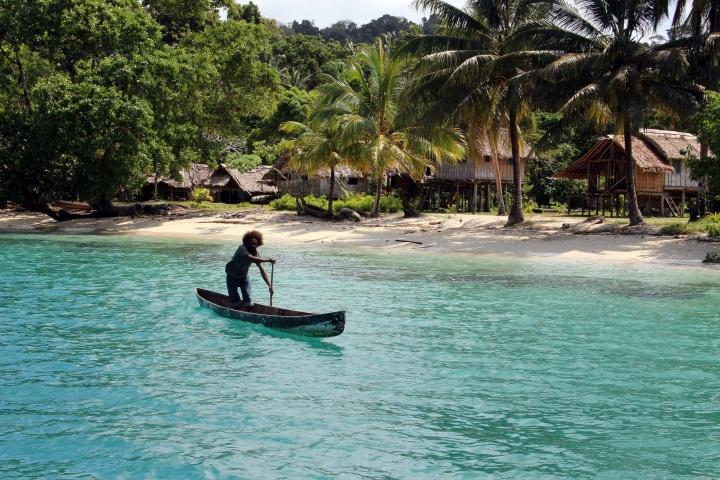
On January 25, 2016, the Solomon Islands’ human rights record was reviewed by the United Nations Human Rights Council as part of the second cycle of the Universal Periodic Review (UPR) process. This mechanism emerged from the 2005 UN reform process and periodically examines the human rights performance of all 193 UN Member States. It is intended to complement the work of other human rights mechanisms, including the UN human rights treaty bodies. This is the first international human rights mechanism to address all countries and all human rights.
The UPR is an opportunity to report on the implementation of certain recommendations as well as the general state of human rights in the country subject to review. The process stresses dialogue and a sharing of knowledge on both local and global levels. There are five phases of participation in the Universal Periodic Review; Preparation, Interaction, Consideration, Adoption, and Implementation. In total, these five phases amount to a 24-month campaign that can educate, engage, and empower Indigenous Peoples to connect issues at the grassroots level with global governmental responsibility based on recommendations drafted in their own communities and countries.
During Solomon Islands’ review, several recommendations were made pertaining to Indigenous Peoples. These recommendations affect the country’s predominantly indigenous population of 600.000 people who speak 120 different languages across 347 inhabited islands. The largest non-Solomon Islander populations consist of Polynesian and i-Kiribati peoples, who have often been brought to the Solomon Islands through British colonialism. Although the country is predominantly Indigenous, the Solomon Islands has yet to ratify many major treaties, including the United Nations Declaration on the Rights of Indigenous Peoples. Particularly rural and remote communities have struggled to achieve human rights, especially with mounting struggle created by industrial logging, extractive mining, and most significantly to the island nation, climate change.
Cultural Survival is one of the seven organizations that submitted a stakeholder report. Focusing on Indigenous Peoples’ rights, the report reviewed the status of the recommendations made in the previous cycle of the UPR. Second cycle recommendations that reflect the submission by Cultural Survival include:
- To ratify and implement major international human rights treaties, in particular ILO no. 169 and the United Nations Declaration on the Rights of Indigenous Peoples (Argentina, Slovenia, Iraq, Benin, Philippines, Djibouti, Morocco, Nigeria).
- To further its commitment to gender equality and the equal rights of women and children, with specific regard to rural areas (Morocco).
- To use the advantage of its matrilineal society to improve women’s access to power, especially in relation to land issues, sanitation and family rights (Jamaica).
- To enhance the access and fairness of the formal justice system, especially in regards to rural areas and through the establishment of Truth and Reconciliation Committees (Australia, Trinidad and Tobago, France).
- To establish independent human rights institutions and enact legislation that ensure that corporations respect human and environmental rights and directly addresses the displacements caused by climate change and natural disasters (New Zealand, Switzerland, Djibouti).
These recommendations are given to encourage the government to improve their human rights records, and to provide the opportunity for citizens to set up specific goals. These reviews provide the tools and information to continue to advocate for change and to hold, in this case, the Solomon Islands, accountable to its commitment to human rights.
There are many different ways in which civil society, both Indigenous and non-Indigenous, can use this information to strengthen commitment to human rights and hold their governments accountable in implementing UPR recommendations.
By publicizing the recommendations and commitments made by the country involved, and raising awareness of the envisioned benchmarks, civil society can make the government accountable to its citizens, as well as increase the participation of Indigenous and other marginalized citizens in the process of creating, assessing, and evaluating these recommendations. This is possible through radio shows, press releases, publications, speaker events, festivals, email blasts, social media campaigns, and community organizing as examples.
To become a part of the implementation of the recommendations. To ensure the sustainability and success of these recommendations Indigenous citizens and their organizations need to part of or lead the implementation. This is possible through advocating for transparency, inclusion, and creating awareness and accountability. As the inclusion of Indigenous voices is in itself a recommendation, it is important to hold the country accountable.
Besides implementing recommendations, Indigenous citizens and their organizations should also be part of monitoring, evaluating, and reporting on the implementation of these recommendations. One way of vocalizing Indigenous concerns is through presenting at the Human Rights Council, which convenes three times a year.
Solomon Islands civil society groups and local organizations can read UPR Info’s “Civil Society Follow Up Kit” to learn more about how to implement UPR recommendations on the ground in their country.
Ultimately, the UPR process is an opportunity for Indigenous communities to vocalize their concerns and experiences, create action plans, and ensure implementation and accountability.
